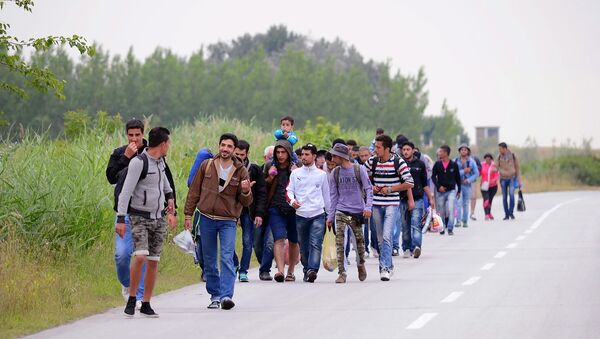“From interviews repeatedly done with the refugees crossing into Europe from Syria and Turkey, predominantly their country of choice is Germany and Sweden. When asked specifically why, it’s not necessarily due to political reasons,” Nasr told Sputnik.
He further said that their choice for Germany and Sweden is owed to the fact that these countries will provide them with greater social benefits, in terms of economic aid.
Talking about whether this is a burden for the German welfare system, Nasr said, “One side of the debate will tell you that what these people will bring to the table, will offset any short term drain on the German social welfare state, because in the main sense we are talking about the educated people. We are talking about engineers, doctors, etc.”
However, the journalist said that on the other hand, people will look at a different side saying that in other large cities in Germany there is little integration and large scale unemployment.
“We are mostly not talking about the educated, eager to integrate segment of Syrian and Iraqi society, so I don’t know if the argument about the upper middle class seeking to improve their lives economically really holds true here,” Nasr said.
Looking at the situation in Europe, it explains why the refugees are going to those countries that can provide them with the benefits of social welfare and a better quality of life, such as Germany and Sweden.
Considering another reason why these refugees are headed to Germany, Nasr said, “I am not opposed to arguments raised by some people saying that the German state has played its role as the central member of NATO in destabilizing Syria and Libya and causing therefore, political and social chaos on the ground which is responsible for this wave of refugees.”
The journalist said that these arguments really resonate with him but the issue is that it won’t resonate with the ordinary people, for example, German workers. They will be resentful of this and it will cause tensions just like it already has in the eastern part of Germany.
Nasr added that it doesn’t seem likely that people’s quality of life in the near future will improve because of the current economic conditions in Europe.
“The benefits will be cut; salaries will be dropping so I don’t think people who are looking at it with rose colored glasses are going to be accurate in the long term,” Nasr concluded.



